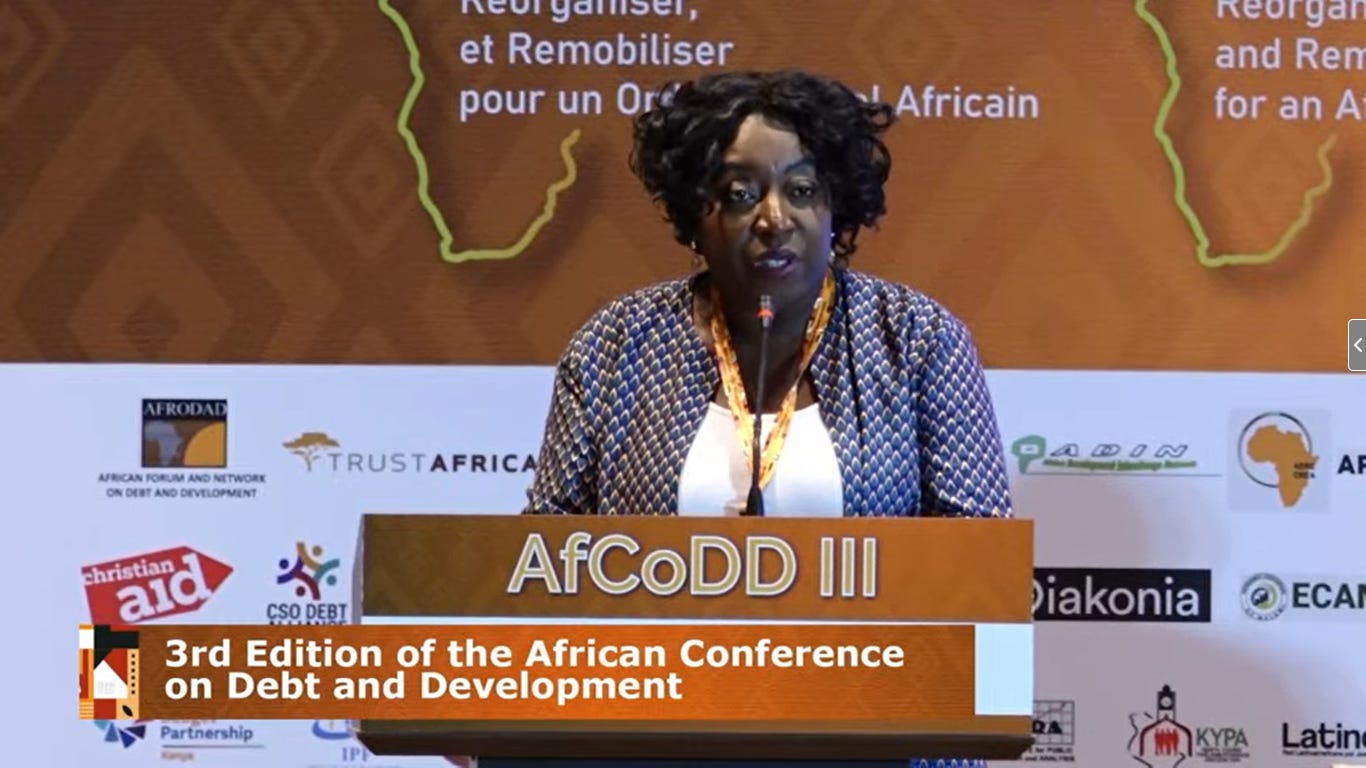🌍🌐 AfCoDD III Commences: Barbara Khalima-Phiri Sets the Tone for a Transformative Conference
Khalima-Phiri emphasized that the world has transitioned from a "multiple crisis order" to a "poly-crisis world order," citing the words of United Nations Secretary-General Antonio Guterres.
DAKAR, Senegal — The 3rd African Conference on Debt and Development (AfCoDD III) kicked off with a powerful welcome speech by Barbara Khalima-Phiri, Board Chair of the African Forum and Network on Debt and Development (AFRODAD), setting the stage for a conference focused on reimagining Africa's future in a challenging global landscape, writes Winston Mwale.
In her opening remarks, Khalima-Phiri extended greetings to dignitaries, delegates, and partners, both physically present and virtually joining from various time zones.
She expressed her humble pleasure in welcoming participants to Dakar, Senegal, for this critical event, co-hosted with Trust Africa and AfriCatalyst.
The conference, which follows the previous edition held in Lilongwe, Malawi, just twelve months ago, seeks to address the deep fractures in the global world order, particularly in the context of Africa's struggles with debt and economic development.
Khalima-Phiri emphasized that the world has transitioned from a "multiple crisis order" to a "poly-crisis world order," citing the words of United Nations Secretary-General Antonio Guterres.
She highlighted the alarming trend of African countries defaulting on their national debt, with five nations, including Zambia, Ghana, Chad, Ethiopia, and Sri Lanka, formally entering debt crisis resolution processes.
Notably, four of these countries are African, demonstrating the pressing nature of Africa's debt burden.
The AFRODAD Chair underscored the consequences of Africa's debt crisis, noting that it burdens African citizens who bear the consequences of both irresponsible borrowing and lending practices.
She criticized institutions like the International Monetary Fund (IMF) for providing loans under the guise of "highly concessional" terms, further exacerbating Africa's debt trap.
Khalima-Phiri painted a picture of Africa trapped in a low productive capacity cycle, hindered by a neo-liberal economic order that limits its ability to industrialize and transform its economies.
She lamented that the current global economic governance architecture offers little room for Africa to prosper.
The conference's theme, "The 4Rs: Reimagine, Rethink, Reorganize, and Remobilize for an African World Order," reflects the need to address these systemic challenges.
Khalima-Phiri called for a thorough examination of the continent's issues from an external perspective, similar to how development partners perceive Africa, to better understand opportunities for self-benefit.
She stressed the importance of REORGANIZING and REMOBILIZING to exert Africa's sovereign right to self-determination.
Khalima-Phiri highlighted the significance of solidarity among African states and societies in the fight against colonialism and apartheid, drawing parallels with the African Union's Agenda 2063, aimed at transforming Africa into an economic powerhouse.
Concluding her address, Khalima-Phiri urged participants to engage in deliberate discussions, focusing on political economy analysis, alternative macroeconomic frameworks, and innovative solutions.
She emphasized that failure to address the current crisis would jeopardize Africa's youth and future, urging attendees to work collectively to make Africa a "Rule Maker" rather than a "Rule Taker" in the global arena.
AfCoDD III promises to be a forum for insightful discussions and collaborative efforts to tackle Africa's debt and development challenges head-on.




